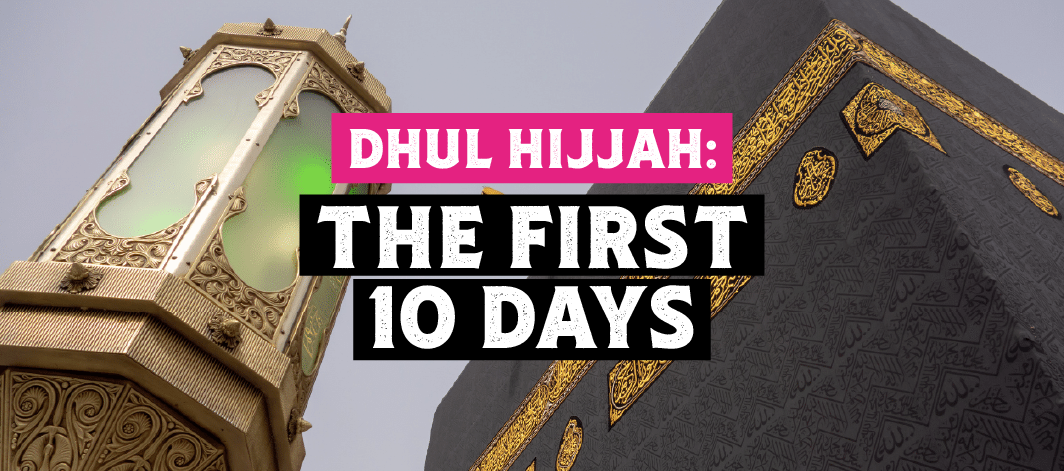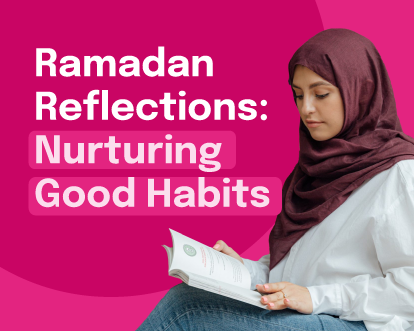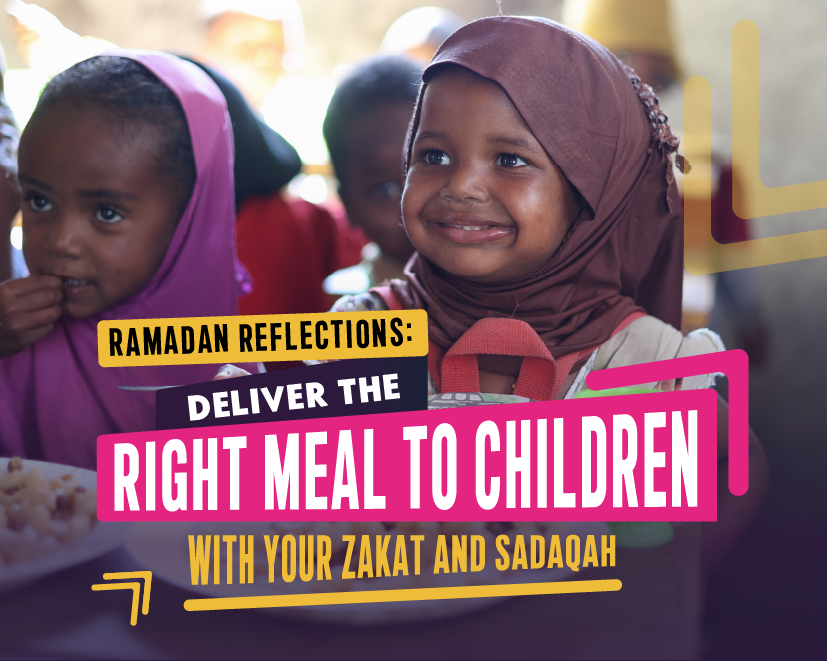Contents
What Is Dhul Hijjah?
We’re approaching the month of Dhul Hijjah, the twelfth and final month in the Islamic calendar. Since the Islamic calendar follows the lunar cycle, its precise dates change each year.
Dhul Hijjah is a particularly important month in the Islamic calendar because of two very special events: Hajj and Eid Al-Adha.
When is Dhul Hijjah 2023?
In 2023, Dhul Hijjah is estimated to begin on Monday 19th of June and end on Tuesday 18th of July..
What are the Virtues of Dhul Hijjah?
Although Dhul Hijjah is an entire month in the Islamic calendar, the first ten days of the month are the most important. In fact, the first ten days of this month are a great blessing from Allah (SWT) and are even more sacred than the last ten nights of Ramadan.
Ibn Abbas reported that the Prophet (SAW) said:
ما العَمَلُ في أيَّامٍ أفْضَلَ منها في هذه، قالوا: ولا الجِهادُ؟ قالَ: ولا الجِهادُ، إلَّا رَجُلٌ خَرَجَ يُخاطِرُ بنَفْسِه ومالِه، فلَمْ يَرْجِعْ بشَيءٍ
“No good deeds done on other days are superior to those done on these (first ten days of Dhul Hijjah)." Then, some companions of the Prophet said, "Not even Jihad?" He replied, "Not even Jihad, except that of a man who risks himself and his property (for Allah's sake) and does not bring anything back.” [Sahih al-Bukhari & Abu Dawud]
So, what should we do to make the most of these blessed days of Dhul Hijjah? We should engage in as many good deeds as possible in order to gain the rewards and blessings of Allah.
Some of the most revered acts in these blessed days are reading Quran, reciting takbir (saying Allahu Akbar), remembering Allah (SWT), making duas, giving charity and treating others with respect and kindness. We also ought to seek Allah’s (SWT) forgiveness in these appointed days of Dhul Hijjah.
Performing these deeds are an important part of Dhul Hijjah, but much more occurs during this blessed month. Many Muslims complete their holy pilgrimage in Makkah, praying for forgiveness at Mount Arafah and celebrating Eid Al-Adha at the end.
What to Do in the First 10 Days of Dhul Hijjah?
Fasting in Dhul Hijjah
Fasting (Sawm) is such a vital part of being a Muslim that it’s the fourth pillar of Islam. Although fasting is perhaps most famously done during the month of Ramadan, it’s also an important virtue to perform for the first days of Dhul Hijjah.
In fact, fasting during the first nine days of Dhul Hijjah is highly recommended as the Prophet Muhammad (PBUH) himself did this and encouraged others to do the same.
However, the Day of Arafah (the ninth day of Dhul Hijjah) is the most important day to fast on. Fasting just on this one day is so blessed that the act forgives two years’ worth of sin.
Abu Qatadah reports that when asked about fasting on the day of Arafat, the Prophet Muhammad (SAW) said:
“It will expiate the sins of the past year and the upcoming year.” - [Sahih Muslim]
Allah (SWT) offers us the chance to attain this immense reward as he wants us to seek out his guidance and blessings, grow closer to Him and have our sins forgiven. These blessings outstrip any worldly gain that we could possibly imagine.
One of Allah's foremost names is "Ar-Rahman", meaning "The Most Merciful." His divine quality of mercy is evident in the forgiveness that he shows just for fasting for a single day.
Allah (SWT) helps us in every way possible, allowing us to seek forgiveness in such an easy and simple way. Having said that, it is important that we repent sincerely and enact righteous deeds with the appropriate intentions to gain all of the rewards that Allah (SWT) may grant us.
Dua’s to Read in Dhul Hijjah
Since the first ten days of Dhul Hijjah are so sacred, it’s important to make as much dua as you can. Here are a few suggested duas you can make to ensure your Dhul Hijjah is as special as possible.
Rabbana aatina fid-dunya hasanatan wa fil ‘akhirati hasanatan waqina ‘adhaban-nar.
Our Lord! Grant us good in this world and good in the hereafter and save us from the punishment of the fire. (2:201)
Rabbana hab lana min azwajina wa dhuriyyatina qurrata A’yunin waj’alna lil-muttaqina imama.
Our Lord! Grant us in our spouses and children the joy of our eyes and make us an example for the righteous. (25:74)
Rabbana la tuzigh qulubana ba’da idh hadaitana wa hab lana min ladunka rahmah, innaka antal Wahhab.
Our Lord! Do not make our hearts deviate after You have guided us aright and grant us from Your mercy; surely You are the Giver. (3:8)
Dua's for Fasting
If you decide to fast and are able to do so during the initial days of Dhul Hijjah, there are some duas to read for this also.
A dua for the intention to keep the fast:
Allahumma asumu laka fagh fir-li ma gad-damtu wa-ma akh-khartu.
O Allah! I shall fast for Your sake, so forgive my future and past sins.
A dua before breaking the fast:
Allahumma inni laka sumtu wa bika aamantu wa’ala rizq-ika afarthu.
O Allah! I fasted for You and I believe in You and I break my fast with Your sustenance.
Reciting the Quran
Reciting the Quran is one of the greatest things you can do in Dhul Hijjah. The Prophet (PBUH) himself said:
“Whoever reads a letter from the Book of Allah, he will have a reward. And that reward will be multiplied by ten.” [Al-Tirmidi]
Reciting the Quran is a sacred virtue to perform at any time of the year, but during a time like Dhul Hijjah, your multiplied rewards during these days in particular will be greater than you can imagine.
Giving Sadaqah
While it’s not obligatory like Zakat and is instead a voluntary charity, Sadaqah is still hugely important. It won’t just benefit the vulnerable and needy who receive it but anyone who gives Sadaqah due to the rewards and blessings given to you by Allah (SWT).
Since the first 10 days of Dhul Hijjah are the most blessed of the year, rewards gained from giving Sadaqah will be multiplied even more. Don’t miss out on these blessings from Allah (SWT) and make sure you give Sadaqah. You can easily do so by clicking here to donate to Charity Right.
When is Hajj 2023?
Hajj is performed between the 8th and 12th days of the Islamic month. In 2023, Hajj will begin on the evening of Monday 26th June and continue up to the evening of Saturday 1st July.
What is Hajj?
Dhul Hijjah is known mostly as the ‘Month of Pilgrimage’ – the time in which Muslims from all corners of the world gather in Makkah to visit the Sacred House of Allah, the Kaaba, to perform Hajj, the fifth pillar of Islam.
Hajj is the Arabic word for ‘destination’ or ‘purpose’ and is the obligation of every Muslim who is capable to travel and partake at least once in their lifetime.
Where Hajj is concerned the Prophet Muhammad (SAW) said:
“An accepted Hajj brings no less a reward than Paradise" - [Muslim]
As it is a Muslim's duty to complete the holy pilgrimage of Hajj, it is evident that Allah (SWT) wants to grant us the blessing of Jannah. Allah swears to us that acting in accordance with his will for just 5 days of Dhul Hijjah can give us the reward of paradise, such is the mercy of Allah (SWT).
What is the Day of Arafah?
The ninth day of Dhul Hijjah and second day of Hajj is the Day of Arafah, the holiest day of the year in the Islamic calendar. The Day of Arafah is the day in which the Prophet (SAW) gave one of his final sermons and Allah (SWT) perfected the religion of Islam. In fact, the Day of Arafah is so sacred that fasting on this day alone can pardon two whole years’ worth of sin.
Muslims in Makkah gather together to pray for forgiveness on the mountain plain of Mount Arafah which is an essential part of performing Hajj. For those not taking part in the blessed journey of Hajj, it is still a highly spiritual day, whereby fasting and other forms of worship are highly recommended.
As we know, Laylatul-Qadr is the most blessed night of the year, but you may not know that the day of Arafah is the most blessed day of the year.
It is the Prophet's wife Aisha (AS) who narrated that the beloved Prophet Muhammad (SAW) said:
“"There is no day on which Allah frees more people from the Fire than on the day of ‘Arafah." - [Muslim]
When is the Day of Arafah 2023?
As it’s the holiest day in the Islamic calendar, it’s particularly important that you know when the Day of Arafah is and jot it down in your diary. It is a day that offers great reward if you perform all the rituals properly.
In 2023, the Day of Arafah will begin on the evening of Tuesday 27th June and end on the evening of Wednesday 28th June.
When is Eid Al-Adha 2023?
The 10th to 13th days of the month are dedicated to the celebration of Eid Al-Adha, the three-day-long Festival of Sacrifice. In 2023, Eid Al-Adha will begin on the evening of Wednesday, 28th June and last until the evening of Sunday 2nd July.
What is Eid ul Adha?
Eid Al-Adha commemorates the incident where Allah (SWT) commanded Prophet Ibrahim (AS) to sacrifice his son Ismail (AS) to prove his obedience. Ibrahim (AS) showed a willingness to obey Allah (SWT) until the Angel Jibreel (AS) was sent to stop him and sacrifice a ram instead.
During the festivities of Eid, Muslims gather at a mosque for the Eid prayer before visiting friends and family to celebrate, wearing their finest clothes and cooking an array of delicious food.
What is Qurbani?
During Eid Al-Adha, every financially-able Muslim is obligated to offer a sacrifice like Prophet Ibrahim (AS) did. This sacrifice is known as Qurbani or Udhiya, meaning ‘sacrifice’.
Qurbani refers to the sacrifice of an animal, like a goat, sheep or cow, which is then distributed in thirds; one third goes to those who sacrificed the animal and the rest to the poor and needy.
In countries like the UK, only certified people can perform the sacrifice, so Muslims tend to perform Qurbani in the form of a charitable donation, much like paying Zakat.
How Do I Donate?
Charity Right are distributing Qurbani this year. Each £75 animal will go directly to the poorest families in Malawi and Ethiopia, both still recovering from the devastating effects of droughts and storms.
Donate your Qurbani here: www.charityright.org.uk/qurbani








